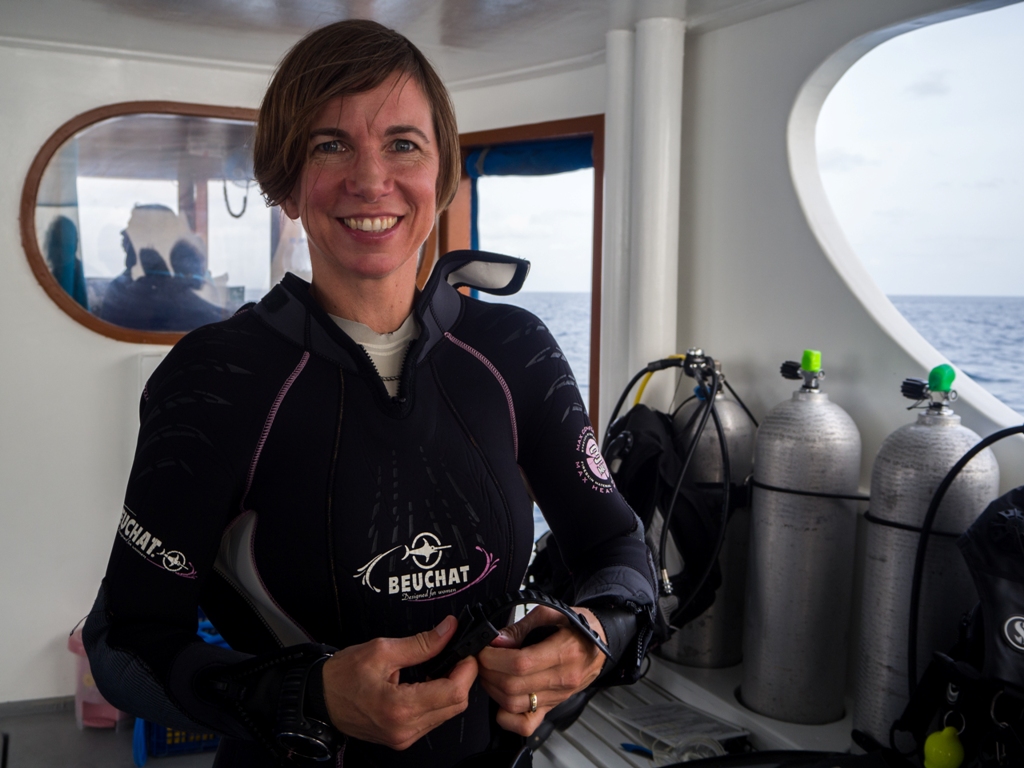
The Matriarch of Conservation | Expeditionist Catherine Edsell – ‘We can all be the voice of wildlife’
In this Conservation Careers interview, learn how you can get into conservation without a degree by upskilling as you go.
“You don’t have to be a scientist to be a conservationist”
This single statement is possibly one of the most powerful sets of words an aspiring conservationist could hear. Catherine Edsell is a world-renowned conservationist and expedition leader. Here, she gives me the rundown on what inspired her to get into conservation, how she did it, and where her amazing journey has led her.
From the beaches of Costa Rica protecting sea turtles, guiding in the Corcovado rainforest, running jungle training courses for Operation Wallacea in Indonesia, building harpy eagle boxes in the jungle of Belize, exploring hidden sinkholes and Mayan ruins, to developing a country project for Operation Wallacea in the cloud forests of Honduras, it’s easy to run out of breath trying to comprehend the scope of Catherine’s work!
She began her career in the ’90s during her summer break from a degree in Performance Art.
“I was at university and, in the long summer break, I thought, what can I do that’s useful, interesting, conservation-based, and free? So, I decided to go to Greece to work with the Greek society of the protection of sea turtles”

Catherine diving in the name of conservation. Credit @cathadventure.
Surround yourself with inspiring people and you will become inspired
“I was inspired because my uncle was a mountaineer and my cousins were Olympic skiers – so, even as a child, I knew that ordinary people could do really amazing things. I think that’s what helped me believe that, when you think things are impossible, they are in fact possible, because my uncle did it and my cousins did it. Even though it wasn’t my direct family, it was near enough to be inspirational. They were grounded and human – ordinary people doing really cool stuff.”
Conservation is reciprocal – find what you like and get involved!
“You just have to find out what your priorities are. I could never go to the Arctic, never in a million years‼ You have to go with what excites you. Once you find that little idea, even if it’s from a seemingly selfish motivation like, I just really need to work on a beach, then think, okay, so what can I offer the Earth that will take me to the beach? It’s finding that reciprocal relationship. There has to be a level of ease; if there’s ease then when you hit a hurdle you can overcome it.”
Chatting with Catherine, it’s easy to feel intimidated! There is almost nothing, it seems, that this amazing woman hasn’t done. As she regales me with her fascinating and inspirational stories, she does so with such a down to earth manner that, for a wannabe conservationist like me, it suddenly all feels so completely attainable!

Breath-taking sunsets, a recriprocal benefit! Credit: @cathadventure.
Give yourself a goal and timeframe
“When I left university, I had a dance company. I did that for a good few years, but I’d had enough after a while. I wanted to go away for a year and do something really interesting. By this point, I’d already gotten my dive qualification. I gave myself a year and applied to lots of conservation organizations all around the world. The one that took me up was actually a sea turtle conservation program in Costa Rica.”
Jobs, and who you meet, lead to jobs!
“It was a great first internship that led on to lots of other things. I stayed in Costa Rica for a long time, so I got involved in lots of different projects. There were eco-tourism conservation projects and guiding in the jungle. I then left Costa Rica, sailing from Panama to get passage to the States. There was an organization that I came across (it was more humanitarian conservation), which led me into tackling poverty relief in rural Indian villages.
“After that, I came back to the UK and I thought, actually, I’d like to get a bit more training – not in conservation per se, but in the more practical side of things like mountain leaders. With these skills under my belt, I then got a job in Indonesia with Operation Wallacea.”
Seeing the impact of your hard work is inspiring
“My time in Indonesia was a really consolidating period. Visiting the same area ten years later and seeing how vibrant the rainforest is now compared to how it was when I first went, with hornbills just flying over in droves, was inspiring.
“The locals didn’t really know that these were endangered species; they didn’t know that if they cleared certain parts of the forest then that affected habitats. Education was key, and Operation Wallacea employed local people as the guides and porters. Like I said, going back ten years later and seeing such incredible results – Indonesia was really special because of that.”
Citizen science and manpower are just as important as science
“Supporting the conservation goals of organisations is where citizen science really comes into its own as it provides the manpower to actually do the work. It’s all very well having an idea, but you need people to actually walk the beaches to locate the turtles or walk through the jungle to count the frogs.
“Lots of volunteers come who are doing dissertations in biology, environment, ecology or conservation and they’ll work with the scientists, and then there was me. I was the coordinator for organising all the base camps and all the training of the volunteers so they could survive in the jungle.
“Being hands-on with all these scientists was amazing. I felt like I had the best job because I could work with the bats, I could work with the snakes, I could work with the small mammals, and I didn’t have to have a niche like a scientist.”

Credit: @cathadventure.
The best part of the job – Being the voice of wildlife
“As humans, we are very, very short-sighted species, and we don’t care enough about our planet. We expect a lot from it, and we don’t give anything back. It’s that reciprocal relationship that needs to be developed.
“The Earth provides me with everything I need; therefore, I’d like to help, especially animals. They don’t have a voice of their own, so they can’t speak up for themselves. They can’t say, ‘Bog off, you’re taking all my eggs!’ Being the voice of animals that have no voice is why I do it. Because it’s simple.”
The biggest challenge is managing people
“People management is the most difficult thing. But that’s my job, and that’s why I’m an expedition leader. I’ve got twenty years’ experience doing it. I’m quite a diplomat and I try to keep things on an even keel. When you can see that somebody is losing the plot a little bit, through no fault of their own, I use those skills.”

Catherine doing what she does best, leading and managing expeditions. Credit: @cathadventure.
Don’t worry if things don’t work out first time
“Don’t worry if things don’t work out the first time because things do come around. You might have a better springboard or have a new contact. The industry is quite small, so once you do get into it there are lots of connections you can make.”
Top tip – You don’t have to pay lots of money to volunteer
“I’d always be wary about paying a lot of money to do stuff. My friend’s daughter wanted to go on a gap year to do conservation work and was going through a gap year program. It was really expensive, so I said, ‘Why don’t you just choose the one you want to go on and then look at the information underneath. You’ll be able to find the contact details of someone on the project and you can go to them directly, and it will be about a quarter of the price – look in the glossies (magazines), because they’ve already done the work, they’ve already put these packages together.’ It’s a really good way to do it – voluntary work for a lot less money.”
A life of adventure whilst leaving a legacy
Catherine has also worked as a PADI divemaster, lectured in coral reef ecology in Indonesia and more recently, she is leading her flagship expedition The Matriarch Adventure. It aims to empower women and encourage them to ‘step into the wild’. This is a partnership with Elephant Human Relations Aid (EHRA) in Namibia, a volunteer programme I cannot recommend highly enough.

Catherine with her group of women, stepping into the wild for EHRA in Namibia. Credit: @cathadventure.
Catherine is also a mother and has carved out a life that includes both motherhood and conservation. Her drive for female empowerment and desire to expose children to conservation at a young age deserves a blog post all of its own; it embodies that potent mixture of women in conservation and tapping into the ever-growing ecotourism concept.

Getting involved in conservation early, washing squash for elephants. Credit: @cathadventure.
To find out more about Catherine (I couldn’t possibly list all the amazing projects and expeditions she has done!) and her Matriarch Adventure, check out Catherine’s website.
More information on EHRA and the amazing work they carry out in Namibia protecting Africa’s desert elephants can be found on their website. (Watch this space for some blog posts on some of the inspirational people who are behind EHRA)
And finally, a bit about me!
Author profile | Helen Burt

To follow her journey, take a look at her Instagram page @wild_lifewanderer.
Main image credit: @cathadventure.
Careers Advice, Interviews, Mid Career, Senior Level, Expeditions, Educator, Community Conservation, Ecotourism, Marine Conservation Jobs, Wildlife


